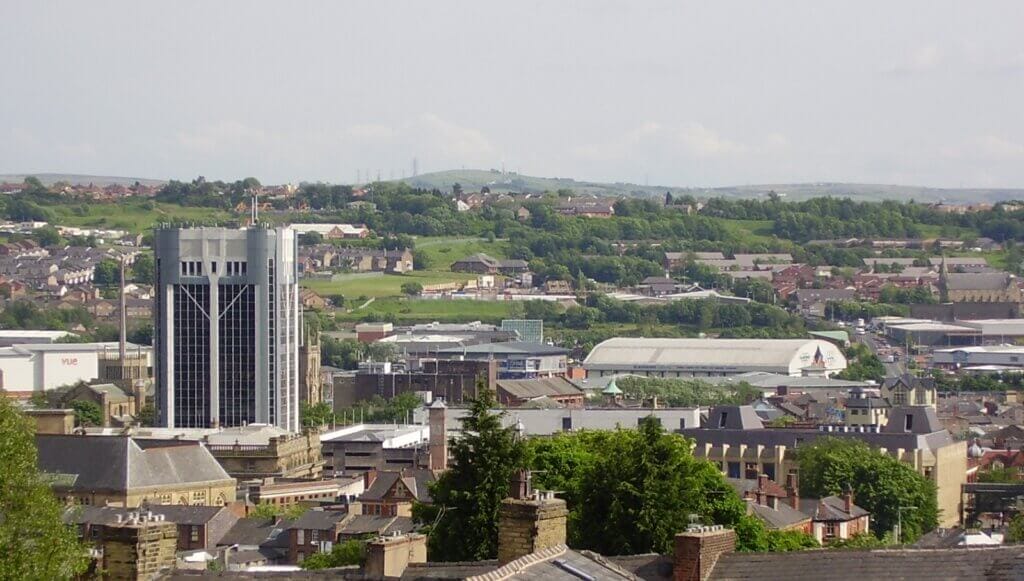Blackburn is a town in Lancashire, England with a rich history dating back to the early medieval period. The town has a population of around 100,000 people and is located approximately 25 miles northwest of Manchester.
The earliest evidence of human activity in Blackburn dates back to the Bronze Age, with the discovery of burial mounds and other artifacts in the area. The town was later settled by the Romans, who built a fort at a crossing point over the River Blakewater.
During the Middle Ages, Blackburn developed into a market town, with weekly markets being held in the town center. The town also had a thriving wool industry, with many woolen mills being established along the river.
In the 19th century, Blackburn experienced rapid industrialization, with the development of cotton mills and other manufacturing industries. The town became a major center for the production of textiles, and its population grew significantly as people moved to the area for work.
During the Industrial Revolution, Blackburn was also home to a number of important inventors and innovations. James Hargreaves, the inventor of the spinning jenny, was born in Blackburn, as was William Henry Barrow, who developed the first power loom.
In the 20th century, Blackburn continued to thrive as an industrial town, with a number of major companies establishing operations in the area. However, like many other industrial towns in the UK, Blackburn has faced challenges in recent years with the decline of traditional manufacturing industries.
Despite these challenges, Blackburn remains a vibrant and thriving town, with a rich history and a strong sense of community. The town has a number of cultural attractions, including museums, galleries, and a theater, as well as a number of parks and green spaces.
Overall, Blackburn is a town with a rich and varied history, from its early beginnings as a market town and center of the wool industry, to its modern-day status as a thriving industrial town. It is a place with a strong sense of identity and community, and a great place to live and work.


